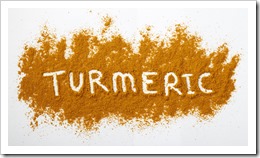 Did you know that curcumin, a component of turmeric (Curcuma longa), has antidepressant activity? Natural medicine has much to offer individuals who suffer from mild to moderate depression, and increasingly, we have things to offer for those with major depression. One of the problems with conventional treatments, is that nearly 50% of patients with major depressive disorders discontinue their medication due to side effects. Finding treatments that do not cause side effects, then becomes much needed area of optimal management. Curcumin, a component of turmeric rhizome has been studied in several clinical trials, but the current paper is a meta-analysis the evaluated the safety and effectiveness of curcumin in treating major depressive disorder.
Did you know that curcumin, a component of turmeric (Curcuma longa), has antidepressant activity? Natural medicine has much to offer individuals who suffer from mild to moderate depression, and increasingly, we have things to offer for those with major depression. One of the problems with conventional treatments, is that nearly 50% of patients with major depressive disorders discontinue their medication due to side effects. Finding treatments that do not cause side effects, then becomes much needed area of optimal management. Curcumin, a component of turmeric rhizome has been studied in several clinical trials, but the current paper is a meta-analysis the evaluated the safety and effectiveness of curcumin in treating major depressive disorder.
The meta-analysis of the literature that was searched included those that met the following criteria: (1) human study, (2) quantitative analysis, (3) intervention and control group, (4) curcumin was an independent intervention, (5) study addressed only major depressive disorder, (6) depression was measured with standardized scales, and (7) the study was in English. Studies were also rated according to quality and the data from all the studies were converted into Hamilton Depression Rating Scale scores.
A total of 1757 studies were identified, and six met all the inclusion criteria which totaled 342 patients (n=177 curcumin and n=165 control). There were four randomized controlled trials, one crossover study, and one open-label study. All patients received an antidepressant prescription medication in addition to either curcumin (1 g/day, n = 5 studies or 500 mg/day, n = 1 study) or placebo. Five of the studies rated strong in quality and one was moderate.
In this meta-analysis there was a significant reduction in major depressive symptoms with curcumin treatment compared with control. In addition, several subgroup analyses demonstrated that curcumin had a significant benefit in middle-aged patients but not older-aged patients, although age ranges were not defined; curcumin had a significant benefit in patients treated for > 6 weeks but not in patients treated for < 6 weeks; 500 mg / day of curcumin did not have an effect but 1,000 m g/day did have a significant benefit; and curcumin had a significantly greater benefit in those patients who only had major depressive disorder vs. those with major depressive disorder and other chronic health problems.
Commentary:
This appears to be the first meta-analysis of the effect of curcumin on major depressive disorder. Summary conclusions are that curcumin is effective in reducing symptoms of depression in patients with major depressive disorder and are already taking prescription antidepressants, and that curcumin is more effective in middle-aged patients. Effective doses were 1 g/day for > 6 weeks. A few cautionary notes with this meta-analysis are that there were only 6 studies; only two doses of curcumin were evaluated; the piperine used to enhance curcumin and/or the doses of curcumin may not have been optimal and that the study was quite short term for such a chronic condition. On the other hand, the methodology the authors used was rigorous and I am encouraged by the research on curcumin and depression.
Reference: Al-Karawi D, Al Mamoori DA, Tayyar Y. The role of curcumin administration in patients with major depressive disorder: Mini meta-analysis of clinical trials. Phytother Res. 2016;30(2):175-183.

